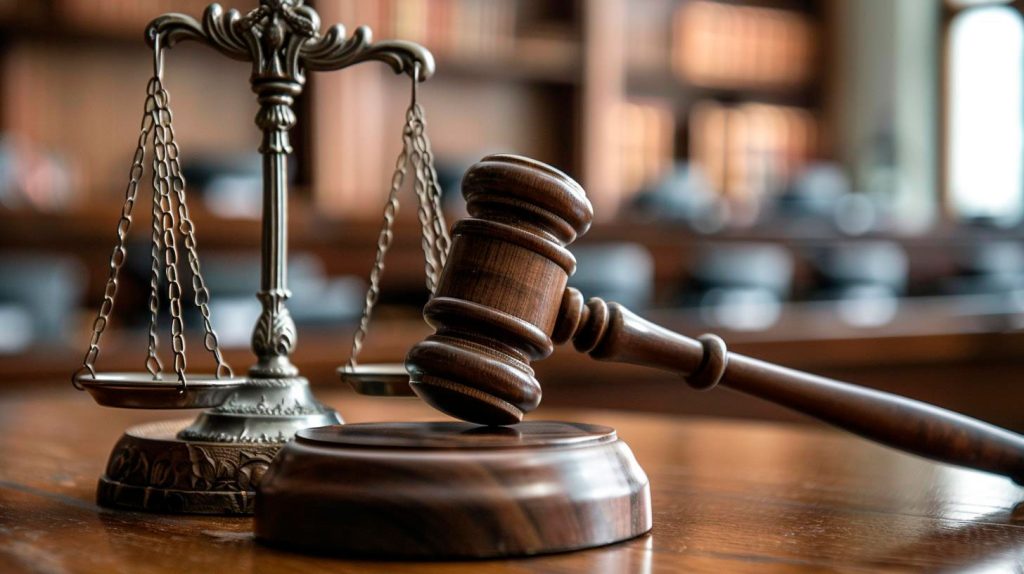
Navigating the Legal Rights and Protections for Consumers with Bad Credit
However, it is important to know that there are legal rights and protections in place to help individuals with bad credit navigate these challenges.
Understanding Your Rights as a Consumer
It is crucial for consumers with bad credit to be aware of their rights under the Fair Credit Reporting Act (FCRA). This federal law regulates the collection, dissemination, and use of consumer credit information. Under the FCRA, consumers have the right to access their credit reports, dispute inaccurate information, and request a free credit report annually from each of the three major credit reporting agencies – Equifax, Experian, and TransUnion.
Additionally, consumers with bad credit are protected by the Fair Debt Collection Practices Act (FDCPA), which prohibits abusive debt collection practices. If you are being harassed by debt collectors, you have the right to request that they cease contact with you and to dispute any debts that you believe are not valid.
Seeking Legal Assistance
If you are facing overwhelming debt or struggling to resolve credit issues on your own, it may be beneficial to seek legal assistance. A qualified attorney who specializes in consumer protection laws can help you understand your rights, negotiate with creditors, and develop a plan to improve your credit standing.
According to a recent study by the Consumer Financial Protection Bureau (CFPB), consumers who work with a lawyer to challenge errors on their credit reports are more likely to see positive outcomes. In fact, the study found that consumers who disputed credit report errors with the help of an attorney saw an average increase of 11 points in their credit scores.
Protecting Your Rights in the Workplace
Having bad credit can also impact your ability to secure employment. Many employers run credit checks as part of the hiring process, and a low credit score can be seen as a red flag. However, it is important to note that under the Equal Employment Opportunity Commission (EEOC), employers are required to obtain written consent from job applicants before running a credit check, and they must provide a copy of the credit report if adverse action is taken based on the information.
Final Thoughts
While navigating the legal rights and protections for consumers with bad credit can be challenging, it is important to understand that you are not alone. By familiarizing yourself with your rights under federal laws such as the FCRA and FDCPA, seeking legal assistance when needed, and staying informed about your rights in the workplace, you can take steps to protect yourself and improve your financial situation. Remember, knowledge is power, and being proactive about your credit issues can help you move towards a brighter financial future.
Understanding the Impact of Bad Credit on Financial Opportunities
Bad credit can have a serious impact on your ability to secure loans, credit cards, and even employment opportunities. In fact, studies show that individuals with bad credit are less likely to be hired for certain jobs and are often charged higher interest rates on loans.
The Impact on Loan Approval
One of the most significant impacts of bad credit is on your ability to get approved for loans. Lenders use your credit score to assess your creditworthiness, and individuals with bad credit are considered high-risk borrowers. This means that they are more likely to default on their loans, leading to higher interest rates and stricter loan terms.
According to a recent study, individuals with bad credit are three times more likely to be denied a loan compared to those with good credit. This can make it challenging to access the funds you need for important purchases, such as a car or a home.
The Impact on Credit Card Approval
Bad credit also affects your ability to get approved for credit cards. Credit card companies use your credit score to determine your credit limit and interest rate, and individuals with bad credit are often offered lower credit limits and higher interest rates.
Research shows that individuals with bad credit are more likely to carry a balance on their credit cards and incur high-interest charges. This can lead to a cycle of debt that is difficult to break free from.
The Impact on Employment Opportunities
In addition to affecting your ability to secure loans and credit cards, bad credit can also impact your employment opportunities. Many employers now conduct credit checks as part of the hiring process, especially for positions that involve handling money or sensitive information.
Studies have found that individuals with bad credit are less likely to be hired for certain jobs, as employers view them as less reliable and trustworthy. This can limit your career opportunities and make it challenging to advance in your chosen field.
The Importance of Credit Repair
If you have bad credit, it’s essential to take steps to repair your credit and improve your financial situation. This may involve paying off outstanding debts, disputing errors on your credit report, and practicing responsible credit habits.
Research shows that individuals who take proactive steps to repair their credit can see significant improvements in their credit score over time. This can open up new opportunities for loan approval, credit card approval, and even employment opportunities.
Understanding the impact of bad credit on financial opportunities is crucial for taking control of your financial future. By taking steps to repair your credit and improve your credit score, you can open up new doors and secure the financial opportunities you deserve.
Working with Legal Professionals to Explore Your Options for Improving Credit
This is where working with legal professionals can make a significant difference.
Legal professionals specializing in credit repair can help you explore your options and develop a plan to improve your credit. Whether you have errors on your credit report that need to be addressed or you’re dealing with the aftermath of a financial hardship, legal professionals have the expertise and resources to guide you through the process.
Understanding Your Credit Situation
Before you can begin to improve your credit, it’s important to understand where you currently stand. Legal professionals can help you obtain and review your credit reports from the three major credit bureaus – TransUnion, Equifax, and Experian. By carefully going through your credit reports, they can identify any inaccuracies or discrepancies that may be negatively impacting your score.
According to a study conducted by the Federal Trade Commission, as many as one in five consumers have errors on their credit reports. These errors can range from simple clerical mistakes to more serious issues, such as identity theft. By working with legal professionals, you can ensure that your credit report is accurate and up to date, giving you a better chance of improving your credit.
Developing a Customized Credit Repair Plan
Once your credit reports have been reviewed and any inaccuracies have been addressed, legal professionals can help you develop a customized credit repair plan. This plan may include strategies such as negotiating with creditors to settle outstanding debts, disputing inaccurate information with the credit bureaus, and implementing positive credit-building strategies.
According to the Consumer Financial Protection Bureau, consumers who work with credit repair professionals see an average increase of 40 points in their credit score within the first six months. By working with legal professionals who specialize in credit repair, you can take the guesswork out of the process and make significant progress towards improving your credit.
Guidance and Support Every Step of the Way
Improving your credit can be a complex and time-consuming process, but legal professionals can provide the guidance and support you need to navigate it successfully. From explaining your rights under the Fair Credit Reporting Act to advocating on your behalf with creditors and credit bureaus, legal professionals can help you every step of the way.
Research from the National Foundation for Credit Counseling has shown that consumers who receive help from credit counseling agencies are more likely to pay their bills on time and have lower levels of debt. By working with legal professionals who understand the complexities of credit repair, you can feel confident knowing that you have the support you need to make lasting changes to your credit profile.
Improving your credit is a worthwhile investment in your financial future, and working with legal professionals can make the process easier and more effective. By understanding your credit situation, developing a customized credit repair plan, and receiving guidance and support every step of the way, you can take control of your credit and achieve your financial goals.
If you’re ready to explore your options for improving your credit, consider reaching out to legal professionals specializing in credit repair. With their expertise and resources, you can make meaningful progress towards a healthier credit profile and a brighter financial future.
Exploring Strategies for Repairing and Rebuilding Credit
In this article, we will explore some strategies that can help you get back on track and improve your credit score.
Understanding Your Current Credit Situation
The first step in repairing and rebuilding your credit is to understand your current credit situation. This involves checking your credit reports from all three major credit bureaus – Equifax, Experian, and TransUnion. You are entitled to one free credit report from each bureau every 12 months, so take advantage of this and review your reports for any errors or inaccuracies.
It’s also important to know your credit score, which is a numerical representation of your creditworthiness. Scores range from 300 to 850, with higher scores indicating better credit. If your score is below 600, you may have trouble qualifying for loans or credit cards, or you may be offered higher interest rates.
Creating a Plan to Repair Your Credit
Once you have a clear understanding of your current credit situation, it’s time to create a plan to repair your credit. This may involve paying off outstanding debts, disputing errors on your credit reports, and establishing good credit habits. One effective strategy is to pay off any past due accounts or collection accounts, as these negative marks can significantly impact your credit score.
Another important step is to make all of your payments on time going forward. Payment history is one of the most important factors that affect your credit score, so it’s crucial to stay current on all of your bills. Consider setting up automatic payments or reminders to ensure that you never miss a payment.
Rebuilding Your Credit Through Responsible Credit Use
Once you have started to repair your credit, it’s time to focus on rebuilding it. One way to do this is by using credit responsibly. This may involve applying for a secured credit card, which requires a security deposit that serves as your credit limit. By using a secured credit card and making on-time payments, you can demonstrate responsible credit use and improve your credit score over time.
Another strategy is to become an authorized user on someone else’s credit card. This allows you to piggyback off of their good credit history and can help boost your own credit score. Just make sure that the primary cardholder is responsible with their credit usage, as any missed payments or high balances could negatively affect your credit as well.
Monitoring Your Progress and Staying Committed
As you work on repairing and rebuilding your credit, it’s important to monitor your progress regularly. Keep an eye on your credit reports and scores to track any improvements and ensure that no new errors have appeared. You can also sign up for credit monitoring services that will alert you to any changes in your credit reports.
Finally, it’s crucial to stay committed to your plan for repairing and rebuilding your credit. Consistency is key when it comes to credit improvement, so don’t get discouraged if progress is slow at first. By following these strategies and staying diligent, you can improve your credit score and open up new opportunities for your financial future.
Repairing and rebuilding your credit may seem like a daunting task, but with the right strategies and a commitment to improvement, it is possible to turn your credit around. By understanding your current credit situation, creating a plan for repair, and rebuilding your credit through responsible credit use, you can take control of your financial future and improve your credit score over time. Remember, good credit opens doors to better opportunities and financial stability, so start taking steps today to repair and rebuild your credit.













Yo, what’s the deal with debt settlement companies? Are they worth it for bad credit?
Disputing errors on your credit report is a crucial step in improving your credit score. It can help remove inaccuracies that may be dragging down your score.
Yo, I heard getting a secured credit card is a good option for improving bad credit. Is that true?
Is it possible to negotiate with creditors to improve your credit score?
Bro, I think credit counseling could help too. What do you think?
Filing for bankruptcy can have a significant impact on credit, as it will remain on your report for several years. It is best to explore other options before considering bankruptcy.
Having a cosigner may help improve your chances of getting approved for credit, but it may not necessarily improve your credit score. It is important to consider the responsibilities involved for both parties.
Credit repair companies can help individuals work on improving their credit, but it is crucial to be cautious of scams. Look for companies with a good reputation and reviews.
I think disputing errors on your credit report is a good way to boost your score. Agree?
Can getting a cosigner help improve bad credit?
Yes, negotiating with creditors can be a valid option for improving your credit score. It may involve setting up a payment plan or settling debts for less than the full amount owed.
Is it true that taking out a personal loan can help increase your credit score?
Credit counseling can provide valuable guidance on managing debt and improving credit. It is worth exploring for those struggling with bad credit.
Debt settlement companies can offer assistance in negotiating with creditors to settle debts for less than the full amount owed. However, it is essential to research and choose a reputable company.
Heard about debt consolidation as a way to improve credit. Is that legit?
A secured credit card can be a good option for improving bad credit. It requires a security deposit as collateral and can help build positive payment history.
Heard filing for bankruptcy can ruin your credit even more. True or false?
Taking out a personal loan can potentially help increase your credit score if you make timely payments and manage the loan responsibly. It can diversify your credit mix and show positive payment history.
Debt consolidation can be a useful tool for managing debt and improving credit. It involves combining multiple debts into a single payment, which can make it easier to stay on track.
I heard about credit repair companies, but aren’t they just a scam?